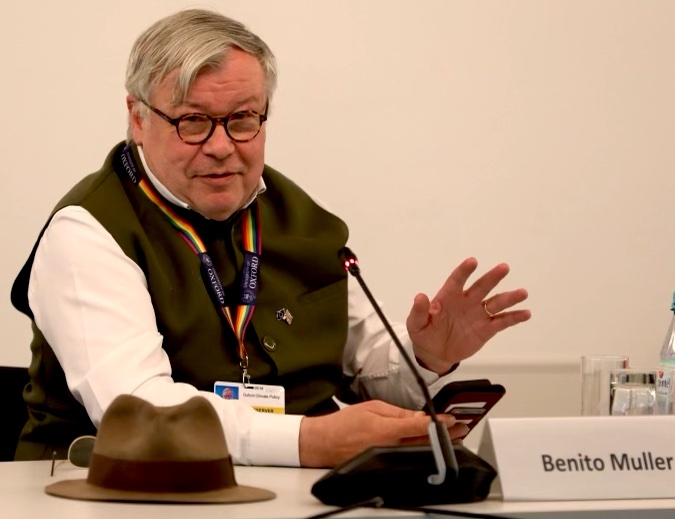
On 9 June, ecbi Director Benito Müller participated in an event titled Actions After Impacts: Set of Solutions & Opportunities from Non-State Actors to Address Loss and Damage, which took place on the sidelines of the UNFCCC Subsidiary Body meetings in Bonn. During the event, Mahmoud Mohieldin and Razan Al Mubarak, UN Climate Change High-Level Champions for COP27 and COP28, respectively, highlighted the importance of participation by non-state actors in tackling loss and damage in light of the agreement at COP27 to establish funding arrangements for loss and damage.
ecbi Director Benito Müller presented on innovative funding sources and ways to raise additional funds from the private sector, underscoring that: 1) the multilateral regime is necessary, but not sufficient, to tackle the climate problem; and 2) the wellbeing of the regime’s financial mechanism is key to the wellbeing of the regime itself. He warned of dangers posed by potential undesirable scenarios with respect to the outcome of the fund, namely that it could become a placebo fund and that countries could move money away from the Green Climate Fund toward the new Loss and Damage Response Fund.
Photo: Kiara Worth/IISD
Thus, he stressed that now, more than ever, innovative funding sources are needed. He suggested resurrecting the idea of International Climate Solidarity Levies as detailed in a recent OCP Blog Post, explaining that the levies could be imposed on air tickets and shipping containers and then channeled to the Loss and Damage Response Fund. However, he explained that as the COP and COP lack the remit to impose a global levy, countries should themselves impose levies, using the French solidarity levy for HIV/AIDS as an example, in which funds were raised through air ticket levies. He proposed doing the same for loss and damage, noting it could result in €1 billion Euros annually if EU adopted an air ticket levy. He said some countries must be willing to take the first step on this approach, which would be easy to collect and provide a safe predictable flow of base income for the fund, if the money raised gets channelled and earmarked into separate fund that would then be sent to the Loss and Damage Response Fund. In addition to air ticket levies, he suggested, in line with a proposal by the International Maritime Emission Reduction Scheme, charging €10 per shipping container.
Other presenters included Saleem Huq, Director, International Centre for Climate Change and Development (ICCCAD), Rob Cameron, Vice President Global Head of Public Affairs and ESG Engagement, Nestlé, and Lesley Ndovu, CEO, Africa Risk Capacity, among others.
This event built on the foundations of the High-Level Champions’ work on Actions After Impacts in 2022 as detailed in a discussion paper. Participants discussed concrete solutions and examples, as well as provided guidance for increasing actions to address loss and damage by non-state actors, including from business, private finance, cities and regions, and frontline communities.
ar
